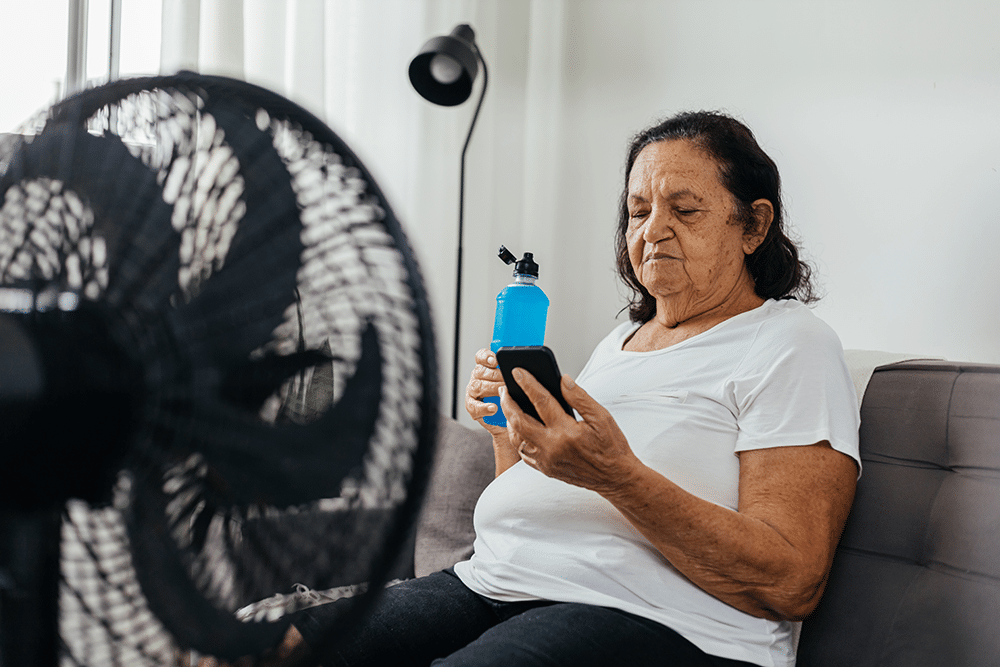Heat-related illness can manifest in more than one way, typically resulting in heat cramps, exhaustion, or stroke. During the summer months and especially now during the extreme heat and humidity we are experiencing, it is important to check on our elderly family, friends, and neighbors. Make sure they are staying cool and comfortable and remind them to drink more water. As we age, we must be careful because our bodies no longer have the same reserve they once did, especially when we mix heat, humidity, and physical exertion. Heat-related illnesses may become more dangerous as we age because we lose our cardiovascular capacity to eliminate heat.
According to the National Institute of Health, factors that make a person susceptible to heat-related illness include older age, heart disease, other chronic diseases, extreme exercise, sunburn, obesity, sleep deprivation, alcoholism, and certain medications. Patients taking beta-blockers, tricyclic antidepressants, aspirin, and diuretics are predisposed to heat disorders. When overheated, the cardiovascular system may be unable to maintain elevated cardiac output because body fluids are lost to sweating and internal swelling. The blood vessels in the skin then collapse, and the body is unable to sweat. As a result, heat cannot dissipate, causing it to build up within the body. Ultimately, serious medical consequences can result if symptoms of heat-related illness aren’t recognized and treated. Symptoms of heat stroke include weak, rapid pulse; rapid breathing; no sweating; mental signs of headache; confusion; clamminess; disturbed gait; dizziness; and in very severe cases, unconsciousness.
How Can I Lower My Risk for heat-related illness?
- Drink plenty of liquids, such as water, fruit or vegetable juices, and carbohydrate-electrolyte drinks, such as Gatorade. Stay away from drinks containing alcohol or caffeine. If your doctor has told you to limit your liquids, ask what you should do when it is very hot.
- If you live in a home or apartment without fans or air conditioning, try to keep your house as cool as possible to lower the risk of heat-related illness. Limit your use of the oven. Keep your shades, blinds, or curtains closed during the hottest part of the day. Open your windows at night.
- If your house is hot, try to spend time during mid-day in some place that has air conditioning—for example, go to the shopping mall, movies, library, senior center, or a friend’s house.
- If you need help getting to a cool place, ask a friend or relative. Some religious groups and senior centers offer this service.
- Dress for the weather. Wear light-colored clothing made from cotton and other materials that wick perspiration.
- Don’t try to exercise or do a lot of outdoor activities or gardening in the hottest part of the day in full sun.
- Avoid crowded places when it’s hot outside. Plan trips during non-rush-hour times.
- Cool down! Take tepid (not too cold or too hot) showers, baths, or sponge baths when you’re feeling warm. Don’t have the time? Then wet washcloths or towels with cool water and put them on your wrists, ankles, underarms, and neck to help combat heat-related illness.


